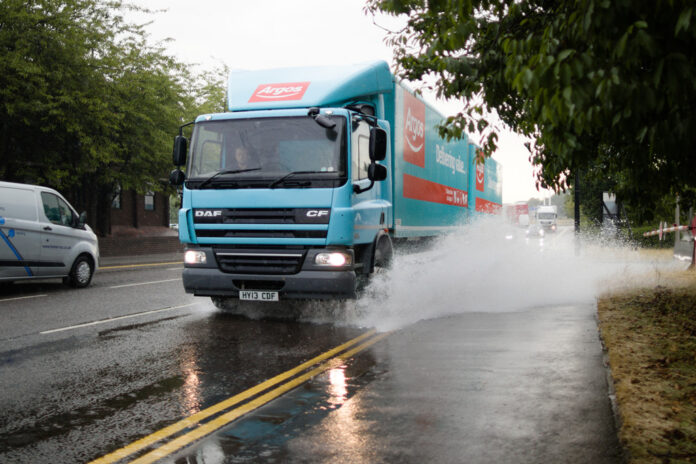
Motorists are being warned about winter driving mishaps that could land them with penalty points, fines or even higher insurance premiums.
Experts from car insurance comparison firm Quotezone.co.uk have revealed seven ways motorists can avoid these costly mistakes and stay safe in the winter conditions.
Many drivers underestimate the challenges posed by winter weather and make avoidable mistakes.
Among the common winter driving pitfalls are leaving the car idling to defrost it, driving with faulty tyres and not cleaning the windscreen before setting off.
To avoid these driving errors, motorists are encouraged to plan ahead for the winter weather and adjust their driving to meet the conditions.
Greg Wilson, Founder of Quotezone.co.uk said: “Winter is the most challenging time of the year to be hitting the roads and if drivers are not careful, it’s easy to make costly mistakes.
“These simple errors however can result in eye-watering fines and penalty points on licences. Just three points on a licence can add 5% to premiums every year, while six points can increase the premiums by as much as 25%.
“Drivers could also be at risk of losing their hard earned no claims bonus which they may have built up over the years.
“It’s important for drivers to be aware of common winter driving pitfalls so they can avoid points and keep their premiums as low as possible.”
The team at Quotezone.co.uk has put together a list of seven things to look out for when driving this winter:
- Defrosting
It’s tempting to leave the engine running while the windscreen unfreezes, and the car warms up. However, if the vehicle is stolen in the meantime, many insurance companies will not cover the loss. Leaving engines running, also known as ‘idling’ is also an offence under section 42 of the Road Traffic Act 1988. This is because it’s bad for the environment as it increases the amount of dangerous gases emitted into the air from the car’s exhaust.
- Don’t use boiling water on windscreens
It’s never a good idea to use boiling water to defrost the windscreen. Glass can crack when it experiences a sudden change in temperature, and windscreen damage isn’t always covered by a standard car insurance policy. It’s better to use a frost guard, a defogger or even homemade de-icer – lukewarm water mixed with rubbing alcohol.
- Clear your windscreen before you set off
Windscreens with inhibited views can land drivers with a £1,000 fine and three points on a driving licence. So any leaves, snow, ice, mud or even condensation needs to be fully cleared before you start driving.
- Check tyres
Motorists can be fined a hefty £2,500 for each faulty tyre and receive three points on their driving licence. If the police see another tyre falling short, it doubles to £5,000 and six points. Four faulty tyres could even see the maximum 12 points, resulting in losing a driving licence. Commercial vehicle drivers, where the car or van is owned by their employer – could land firms with penalties of up to £20,000.
- Clean the number plate
Excess mud and grit on the roads this time of year can make your car dirty very quickly, and if the number plate isn’t clearly visible, drivers could face a fine of £1,000.
- Driving in a flood
Some car insurance policies include clauses advising policyholders not to drive through flooded roads, and may specifically exclude cover for any water damage to the car if the motorist goes against this advice.
- Avoid soaking pedestrians
Soaking pedestrians by deliberately driving through large puddles can result in a £100 fine and three penalty points. However, in some cases, fines can reach as much as £5,000 for driving without reasonable consideration for others on the road.
Quotezone.co.uk helps drivers save on all sorts of motoring products such as van insurance, convicted drivers insurance and breakdown cover.
Help keep news FREE for our readers
Supporting your local community newspaper/online news outlet is crucial now more than ever. If you believe in independent journalism, then consider making a valuable contribution by making a one-time or monthly donation. We operate in rural areas where providing unbiased news can be challenging. Read More About Supporting The West Wales Chronicle

























